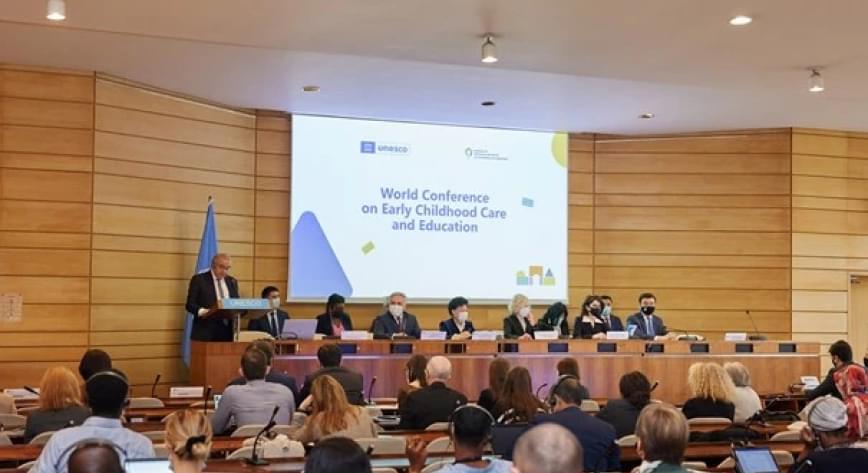
On 29 March, UNESCO and the Republic of Uzbekistan hosted an information session for Member States at UNESCO HQ on the upcoming World Conference on Early Childhood Care and Education(WCECCE). Set to run from 14 to 16 November 2022 in Tashkent, Uzbekistan, the WCECCE aims to reaffirm the right of all children to quality early childhood care and education by renewing its commitment to and investment in the Sustainable Development Goal (SDG) Target 4.2, which calls for ensuring that “all girls and boys have access to quality early childhood development, care and pre-primary education so that they are ready for primary education.”
As stated by the Assistant Director-General for Education, Ms. Stefania Giannini, “Placing children at the center of the SDGs is a matter of rights, well-being, long-term development and intergenerational justice.” In this sense, the overarching goal of the WCECCE is to renew and expand Member States’ engagement and political commitments to develop ambitious, relevant, and culturally appropriate ECCE policies, to put in place effective and accountable ECCE systems, multi-stakeholder partnerships and services, and to increase and improve investment in ECCE as an essential and integral part of their strategies for attaining lifelong learning societies and sustainable development.
In attendance at the information session were the Minister of Pre-school Education of Uzbekistan, Ms. Agrippina Shin, accompanied by the Deputy Minister, Mr. Uzokboy Begimkulov, and the Head of department, Ministry of Preschool Education of Uzbekistan, Ms. Shakhnoza Mirziyoeva, along with a delegation of experts. The high-level commitment from Uzbekistan and UNESCO leadership mobilization will ensure constructive discussions and proposals by all Member States from regional and national consultations, leading to an outcome document during the WCECCE, the Tashkent Declaration, which will guide the framework for action in the coming years on ECCE with a focus on achieving SDG 4.2.


